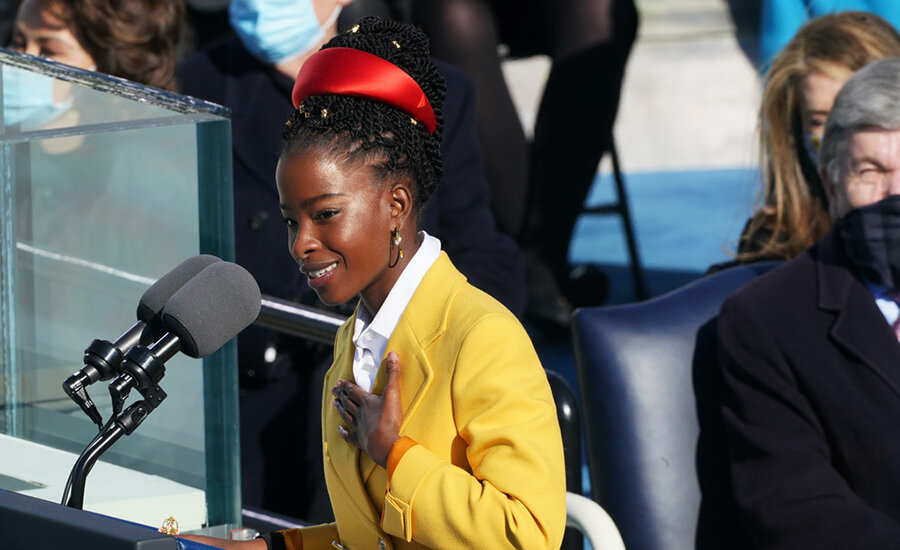Republican Gov. Youngkin looks to root out critical race theory in Virginia
Virginia Gov. Glenn Youngkin, center, signs executive orders in the Governors conference room at the Capitol, Jan. 15, 2022, in Richmond, Va. (AP Photo/Steve Helber)
By MATTHEW BARAKAT and SARAH RANKIN
RICHMOND, Va. (AP) — It was literally the first thing Virginia’s Republican governor, Glenn Youngkin, did when he took office last month: sign an executive order designed to root out critical race theory from the state’s education system.
He ordered the Department of Education to conduct a review and even started a hotline so aggrieved parents could provide tips and examples of its implementation in the classroom.
Community members in support of equity conversations in schools hold signs on Tuesday, June 22, 2021, in Fortworth (Juan Figueroa /Dallas Morning News)
While the issue has been a political hot button — Youngkin’s victory is widely attributed to his ability to tap into parents’ frustration on education issues — the debate over critical race theory has rarely evolved in Virginia beyond a yes-it-is-no-it-isn’t debate. Democrats say the concept simply isn’t taught in Virginia schools. Republicans insist it is widespread and part of a broad, liberal indoctrination of students.
RELATED: Sha’Carri points out double standard in Russian doping scandal
“Anyone who thinks that the concepts that actually underpin critical race theory are not in our schools hasn’t been in our schools,” Youngkin said in an interview with Fox News after he was inaugurated.
Critical race theory, or CRT, is a way of thinking about America’s history through the lens of racism. It centers on the idea that racism is systemic in the nation’s institutions and that they function to maintain the dominance of white people in society.
There is no evidence that CRT has been formally adopted into state curricula. But there is ample evidence key education administrators have incorporated the concept into teacher training. And critics have found examples of what they consider to be critical race theory seeping into classroom lessons.
RELATED: Bernice King is struggling with white Evangelical church
Youngkin’s Executive Order 1 defines critical race theory as “inherently divisive concepts” that portray one race, sex or religious faith as inherently superior, or teach that an individual is inherently racist as a result of his skin color.
The order takes a more limited approach than actions other states have adopted. In Tennessee, for example, lawmakers have banned any instructions that make students feel “discomfort, guilt, anguish, or another form of psychological distress” because of their race.
In an interview Tuesday with The Associated Press, Youngkin said he wanted the executive order to accomplish two things: “get divisive concepts out of our schools” while also ensuring “that we should teach all of our history, the good and the bad.”
RELATED: Joe Rogan is the new Don Imus
“And I think those two concepts absolutely fit together very well,” Youngkin said.
Youngkin’s more moderate plan, however, has done little to assuage Democrats, who killed legislation that would essentially have codified it into state law.
“There’s something that just rubs me the wrong way about this,” said Sen. Mamie Locke, who is African American. “Folks who look like me have had adverse treatment all of our lives and somehow nobody had a problem with that.”
Other critics say Youngkin’s tipline seeking examples of critical race theory in the classroom smacks of Orwellian tactics and could cause teachers to shy away from addressing racism in American history.
But Youngkin’s supporters point to examples of what they see as critical race theory run amok. In Fairfax County, the state’s most populous jurisdiction, the school system apologized after an English teacher in Oakton High School used a bingo card titled “Identifying Your Privilege” as part of a lesson plan. The card included squares with such labels as “white,” “heterosexual,” “military kid,” “Christian” and “Feel Safe Around Police Officers.”
Much of the evidence cited by CRT critics, though, appears in teacher training materials as opposed to classroom lesson plans.
A 2015 presentation circulated through the state Department of Education encourages participants to “incorporate Critical Race Theory Lens” when considering issues of school discipline.
In a 2020 email, then-superintendent of Loudoun County Public Schools Eric Williams wrote that while the school system had “not adopted CRT,” he acknowledged that some of the system’s efforts to combat systemic racism “do align with the ideology of CRT.”
Asra Nomani, a parent activist who has opposed CRT, says there is a “woke-industrial complex” that profits off dissemination of critical race theory.












